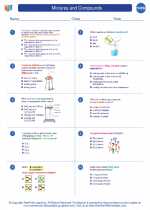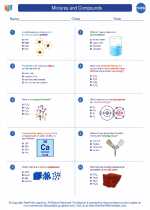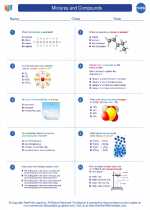Obtaining in Chemistry
Obtaining in chemistry refers to the process of acquiring or obtaining chemical substances through various methods such as extraction, synthesis, or purification. This topic is crucial to understand as it forms the basis for many other chemical processes and experiments.
Methods of Obtaining
- Extraction: This method involves the separation of a substance from a mixture using a solvent. It is commonly used to obtain natural products from plants, such as essential oils.
- Synthesis: Synthesis is the process of creating a compound from simpler materials through chemical reactions. This method is used to obtain a wide range of products, from pharmaceuticals to polymers.
- Purification: Purification involves removing impurities from a substance to obtain a pure product. Techniques such as distillation, crystallization, and chromatography are used for purification.
- Electrolysis: This method involves using an electric current to drive a non-spontaneous chemical reaction. It is often used to obtain elements from their compounds, such as the extraction of aluminum from bauxite ore.
- Reduction: Reduction is the gain of electrons by a substance. This method is used to obtain metals from their ores, such as the reduction of iron oxide to obtain iron metal.
Study Guide
To effectively study the topic of obtaining in chemistry, consider the following key points:
- Understand the different methods of obtaining substances and their applications in practical scenarios.
- Learn the principles behind each method, such as the concept of extraction using solvent polarity or the principles of redox reactions in reduction processes.
- Practice problem-solving related to obtaining, such as calculating yields in synthesis reactions or determining the most suitable purification method for a given substance.
- Explore real-world examples of obtaining processes, such as the industrial production of ammonia through the Haber process or the extraction of natural products for pharmaceutical use.
- Review the safety considerations and environmental impacts associated with obtaining processes, especially in industrial settings.
By understanding the methods of obtaining in chemistry and their practical applications, you will gain a solid foundation in chemical processes and be better prepared for further studies in the field.
.◂Chemistry Worksheets and Study Guides High School. Mixtures and Compounds
Worksheet/Answer key Mixtures and Compounds
Mixtures and Compounds  Worksheet/Answer key
Worksheet/Answer key Mixtures and Compounds
Mixtures and Compounds  Worksheet/Answer key
Worksheet/Answer key Mixtures and Compounds
Mixtures and Compounds 

 Worksheet/Answer key
Worksheet/Answer key
 Worksheet/Answer key
Worksheet/Answer key

The resources above cover the following skills:
Chemistry II
Properties of Matter
Develop and use models to explain the differences between chemical compounds using patterns as a method for identification.
Use mathematical representations to quantify matter through the analysis of patterns in chemical compounds.